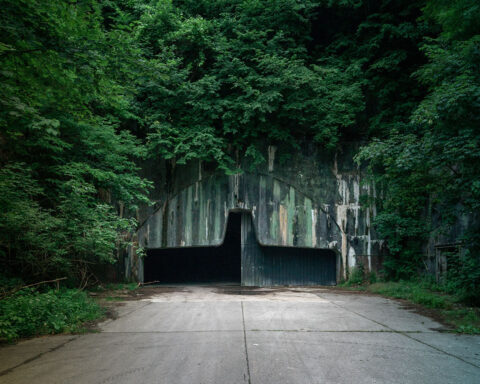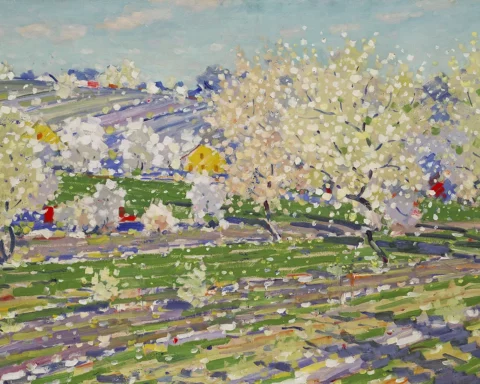Far more than a mere functional home for books, the National Library of Latvia is a symbol of the Latvian spirit and value system. Within its walls are centuries of wisdom, knowledge, and heritage that continue to shape the Latvia of today. The majestic building stands tall on the left bank of the river Daugava, keeping guard over Riga.
The US-based Latvian architect Gunnar Birkerts designed the building in the late 1980s amidst the so-called Singing Revolution and Third Awakening that led to Latvia regaining its independence from the Soviet Union. The architecture exudes the strong sentiment of the time rooted in the people’s will to be free and interprets numerous significant cultural elements.
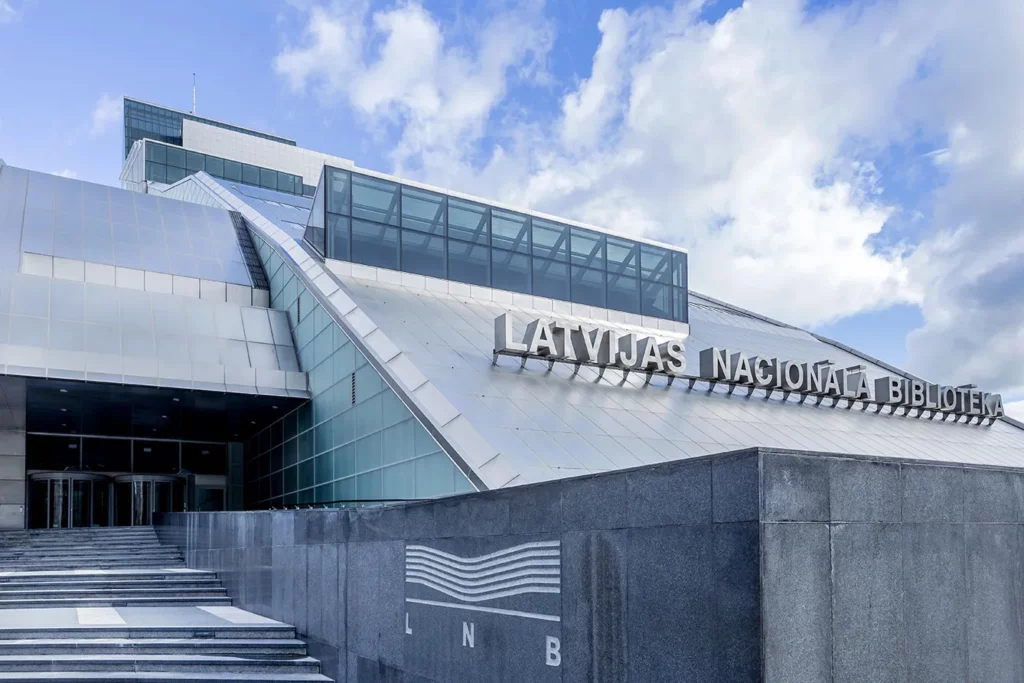
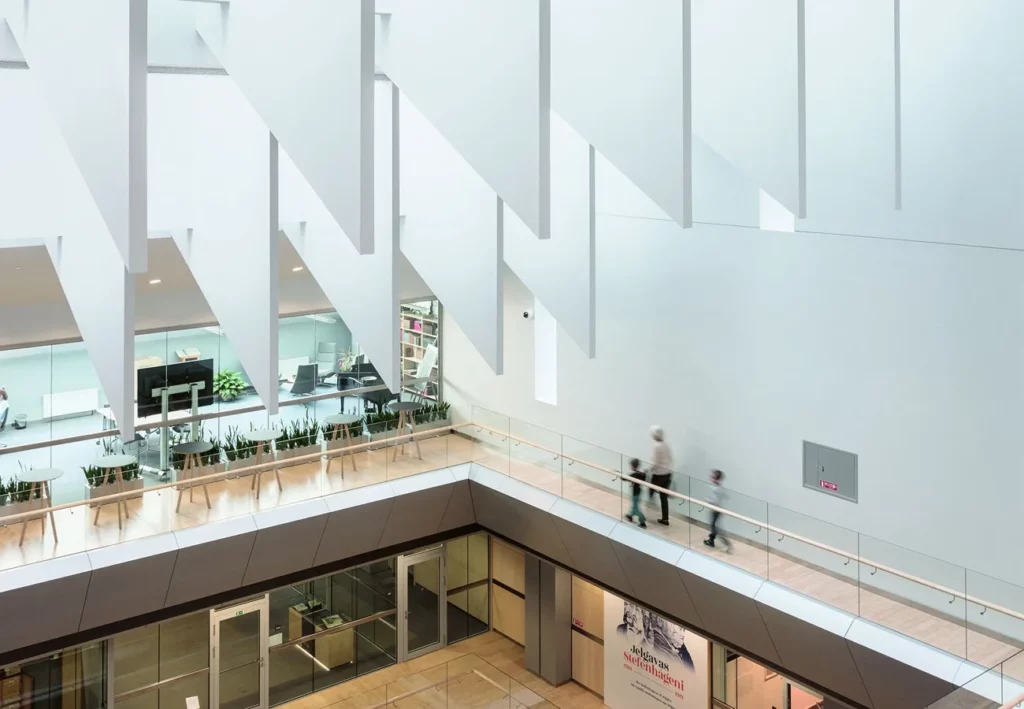
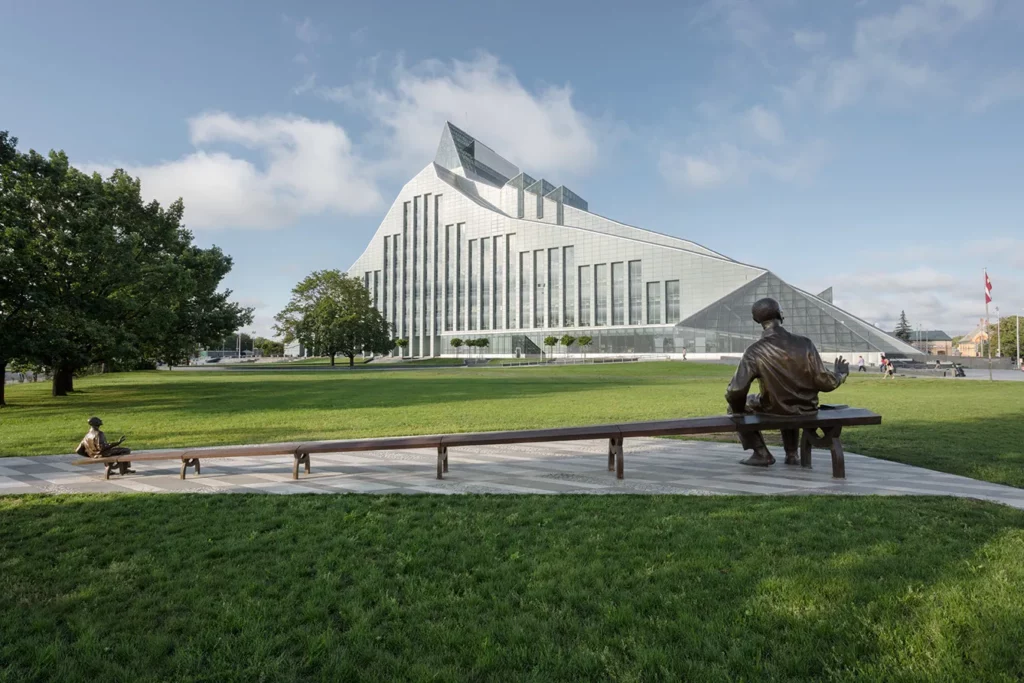
Symbolism on every level
One such element is the “The Castle of Light” (Gaismas pils) – a choral masterpiece inspired by the writer Auseklis’s poem of the same name. Through words, music, and emotion, it speaks of the roots of the Latvian nation, its struggles, and aspirations. The poem is based on ancient tales of a castle, which once sank but someday will rise again, bringing light to the Latvian people. “They called the light, and the light came! Up rose the Castle of Light,” the lyrics go, speaking of the people’s immense willpower and drive. The Castle serves as a reminder to never take our freedom for granted.
Another reference – the Glass Mountain – is a significant element in The Golden Horse (Zelta Zirgs), a play by the Latvian writer Rainis. At the top of the mountain lies a princess awaiting her savior. The mountain represents the challenges one must overcome in life to progress, and the princess represents the rewards that come to those with good intentions. It speaks of how one must dare to reach that highest peak but that it is worth it.
While the Castle of Light and Glass Mountain are the most visible, even tangible, and best-known references, symbolism permeates every level of the library. In the interior, for example, colors distinguish one floor from the other, representing the banknotes of the Latvian Lat – the national currency before the euro.
A library for the people
The building opened its doors in 2014. To mark the occasion, 14 000 people formed a human chain to manually move several hundred books from the library’s former headquarters to its new home. These books now sit on The People’s Bookshelf – another of the building’s central design elements. This extraordinary bookshelf – seen in the atrium – holds approximately 7000 books in 50 languages from all over the world, which well-wishers have donated to the library along with a personal message.
One does not need to donate or borrow a book to visit the National Library of Latvia. Along with the traditional library activities, it organizes public-facing exhibitions and events and even has its own meditation room. The on-site conference center has hosted screenings of the Riga International Film Festival and even the Latvian Presidency of the Council of the European Union.
One of the must-sees is the top-floor event space, which boasts incredible city views. Another is the Cabinet of Folksongs. This unassuming chest of drawers contains thousands of Latvian folk verses (dainas) collected and systematized by the Latvian writer and folklorist Krišjānis Barons.




